#music in film
Text
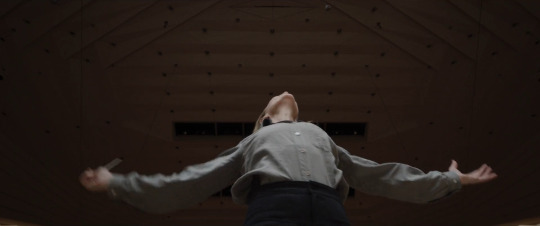

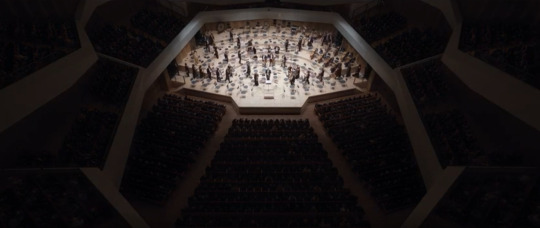

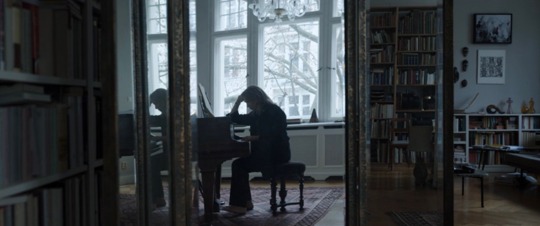
TÁR (2022) - Todd Field
The narcissism of small differences leads to the most boring kind of conformity.
#tar#tár#tar movie#film#todd field#cate blanchett#nina hoss#music in film#film still#quote#conductor#classical music#watched in accra#watched in december 2022
500 notes
·
View notes
Text
"What Was I Made For?" A Look into Barbie's Most Tear-jerking and Overplayed Song
[WARNING: Spoilers for Barbie ahead]
If you've been alive and conscious for the last few months, you've at least heard of Barbie if you aren't one of the people who's been decked out in pink to go see what could, arguably, be called the Movie of the Year.
Even if, by some miracle, you haven't seen Barbie, you've probably heard Billie Eilish's song "What Was I Made For", which plays a pivotal, emotional role in the film. And you've probably drawn your own conclusions about the song, whether you're a fan of Billie's or not.
If you know anything about Billie Eilish, you know that she is no stranger to airplay and TikTok fame, and her most played songs tend to be earworms, played repeatedly until you're ready to pull your hair out. We've all been there.
So, it wasn't shocking when a friend, after seeing Barbie, told me how much he despised the song. I mean, he absolutely loathed it. His argument was clear: "It doesn't fit with the movie! 'Don't tell my boyfriend, it's not what he's made for' totally undermines the entire plot!"
Initially, I nodded in agreement. I like Billie's music, but did it really fit with the movie? Like every weekly hyper fixation, this required a deep dive. I researched how Billie Eilish came up with the song and what it meant to her. To my surprise, I found that it resonated beautifully with the Barbie movie. Let's break down the lyrics before delving into the song's musical significance.
"'What was I made for?' is...it's Barbie's voice...it's your voice...it's anybody's voice" - Billie Eilish Jul. 13, 2023 (Interview with Zane Lowe on Apple Music)
The first verses are quite straightforward in their references. "I used to float, now I just fall down" alludes to Barbie's malfunctioning state, a central plot point in the movie. "Looked so alive, turns out I'm not real" reflects Barbie's mental conflict with realizing that she's just a toy; however, it could also be seen to reflect the other struggle Barbie faces: realizing that the real world is not the feminist, women-driven world she thought it was. Even as "Stereotypical Barbie," she senses that something's amiss. For her, it means that everything the other Barbies worked for has been lost. What's her purpose now? What was she made for?
Now, let's address the contentious line: "I'm sad again, don't tell my boyfriend, it's not what he's made for." At first glance, it seems like Barbie is concealing her sadness from her boyfriend as if she needs to put on a facade to shield him from distress. While this is partly true, there's a broader context that some miss. Barbie grapples with depression, a daunting experience for someone who has only known happiness. We've witnessed how it affects Barbie, both physically and mentally. In the film, Barbie lacks someone to confide in about her feelings, especially Ken, who's portrayed as having limited critical thinking skills. Barbie refrains from telling Ken because she understands he either wouldn't grasp it or wouldn't cope with the impact of her emotions. Thus, the song authentically mirrors Barbie's inner struggle to communicate her newfound feelings and her desire to protect others from her experience.
Another criticism my friend raised was that the music wasn't complex enough. The melody was too simple and the harmony was boring, etc. Here's where we delve into the technical side of the song, starting with the harmony or chord progression.
Firstly, Billie's song is originally composed in C major, one of the simplest keys due to its absence of flats or sharps, with a 4/4 time signature, making it rhythmically straightforward. The main progression comprises C-Em-F7, with an Am thrown in on the repeat of "What was I made for?" resulting in C-Em-F7-Am-Em-F7 until the beginning of the chorus, where the Dm and G chords are introduced.
So if we look at it as a numerical chord progression, it would look like this:
(verse) I-iii-IV7-vi-iii-IV7
and (chorus) ii-V-I-iii-IV
The most used chords in pop songs of a major key are I, V, vi, and IV.
So, what's the "iii" chord doing there? It's rarely used in recent pop music. The Beatles featured it in "Here, There And Everywhere," and Elton John in "Mona Lisas And Mad Hatters," but it's uncommon. When we think of common progressions, it's typically I-V-vi-IV.
What's intriguing is that the dominant (V) chord is only used 3 times in the entire piece, with the final one being the very last chord as a Dominant 7th chord, which, in itself, is such a cool choice. The "V" chord naturally gravitates back to the "I" chord, and the addition of the 7th intensifies this desire to return to the home chord, especially since the expectation has been set for it to revert to C major, as it did twice before in the song. Thematically speaking, this choice reflects Barbie's longing for answers and a purpose. The last chord leaves you aching for something more.
Up to this point, we have a harmonic progression that may not be groundbreaking, but it creates compelling tension. So, what about the melody?
Billie's sung melody is quite simple when looked at on its own. All of the notes are diatonic (within the key signature), and the most complex thing is the few leaps between notes that are present. However, when the simple melody combines with the harmony, that's where the magic happens.
The interplay between the melody and harmony is where much of the tension lies. Billie often sings notes that are "unstable" or not part of the chord playing in the harmony, even though the individual notes are diatonic to the key of C major. This adds complexity and tension to the song. When we hear these notes that don't quite harmonize with what's playing underneath, our ears long for something less discomforting, like the warmth and safety of the tonic chord. In this case, that mild discomfort is what gives the song its potency and relevance to the movie as a whole.
If you want to take a deeper dive into the music theory behind the song, I highly encourage this website to get you started!
Q&A: Do you have a song from a film that you feel strongly about, whether you love it or hate it? Share your thoughts and why it resonates with you.
#barbie#the barbie movie#billie eilish#what was i made for#music#music blog#movie#movie blog#film blog#film analysis#song analysis#music theory#music in movies#music in film#greta gerwig#billie ellish lyrics#barbie 2023#barbie movie 2023#elton john#the beatles#Spotify
21 notes
·
View notes
Text
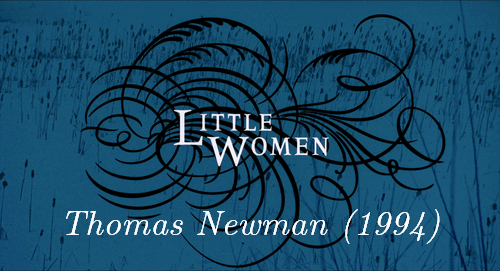



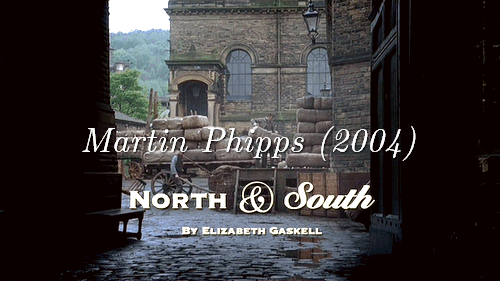
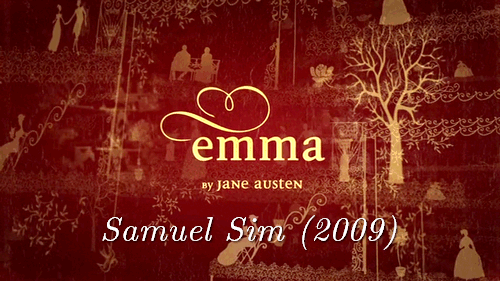
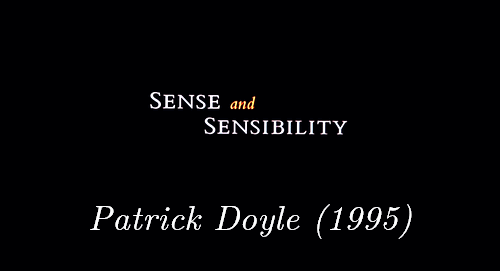
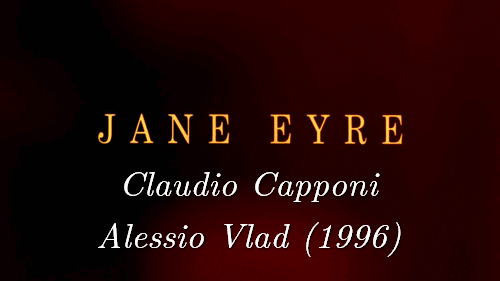
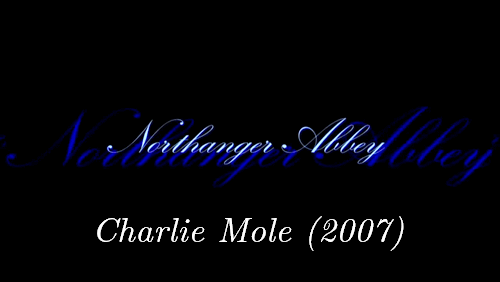
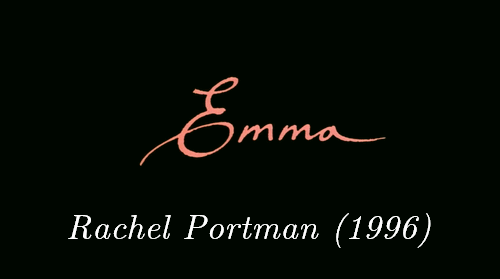
PERIOD DRAMA APPRECIATION WEEK 2022:
Day 7: Free day - My Top 10 Period Drama OSTs
Little Women (1994)
War and Peace (2007)
Pride & Prejudice (2005)
Mansfield Park (1999)
North & South (2004)
Emma (2009)
Sense and Sensibility (1995)
Jane Eyre (1996)
Northanger Abbey (2007)
Emma (Miramax, 1996)
#perioddramaedit#perioddramaweek2022#music in film#little women 1994#War and Peace 2007#Pride and prejudice 2005#Mansfield Park 1999#North and south 2004#Emma 2009#sense and sensibility 1995#Jane Eyre 1996#Northanger Abbey 2007#Emma 1996 Miramax
221 notes
·
View notes
Text
sorry to ramble on and on about I am not okay with this again but the music in this show is so goddamn intentional and it makes me feel so much holy shit-
like the Jessie's girl sequence all of the lyrics, even the ones they drown out in the background of conversation (which I know bc I love the song) mean SO much for the scene
don't even get me fucking started on ending the show with an echo and the bunnymen (one of my all time favorite bands) song god it's just so good
#i am not okay with this#ianowt#echo and the bunnymen#cinematography#music in film#thanks graham coxon and dylann brander
19 notes
·
View notes
Text
Ten Minutes with Oliver Stone
Saturday March 16. It is 1 p.m. In a little over an hour, we have a meeting with Oliver Stone. The American director kindly agreed to answer our questions. The instructions are clear: three questions maximum. At 1:40 p.m., five of us are shown to a small room filled with chairs right next to room 5 of Flagey. In an atmosphere intended to be as informal as possible, Mr. Stone spoke to us about his latest documentary, Nuclear Now, his relationship with documentaries, journalism and above all, the Original Soundtrack!
The BO: Hello Mr. Stone, thank you for agreeing to answer our questions
Oliver Stone: Hello.
In short, we are a media that deals with music and Cinema. Sometimes we try to make connections between the two. We have prepared 3 questions for you. Our first question is related to your coming to this festival, why is it important for you to be there at a festival like Millenium?
Why is it important that I'm here? Because I want to sell the idea of nuclear energy in Europe, particularly in France, Belgium and Holland. France is committed, and Holland and Belgium are favorable, but I would like to see a little more and for it to go faster. You are important countries. Small, perhaps, but you have a mind. You have a big impact on the world. It is important for the world to have nuclear energy. We don't have enough. This is really a problem. People don't think about nuclear power, they have, in a way, forgotten its existence. It's interesting, the Americans say: "Yes, nuclear power, we tried that." Saying that somehow implies that we missed. But we didn't fail, it worked. This is what I'm trying to correct: the impression that nuclear power is a failure. This is very important work, scientific work. But scientists can't do that job, so I do it, as a filmmaker, as a writer. You know, people probably don't care, a lot of people actually don't care but so what? It's important! This is what having a conscience is. If you have a conscience, sometimes you do the right things because you have to do them, right? Like going to your grandmother's funeral, for example. [Laughs] Just kidding, I loved my grandmother very much.
It's interesting that you talk to us about that, we notice that in many of your films there is this documentary aspect. What do you think is the role of documentaries? Why do them? Why are they important to you?
That's a question that would require a very long and complicated answer. I'll give you a short answer. When I make a film, I have to create everything. I have to hire actors, I have to create the set, I have to hire extras, I have to write the dialogue to some degree, light the room, shoot it, etc. Look at us now, we're talking. This is a documentary! Basically, it's much simpler. I don't have to do any of the things I mentioned. I just need to find a real person and talk to them. A documentary gets straight to the point. It goes faster. For a film, it's a minimum of a year, or even two years of time. People don't understand that.
Film critics know nothing about current events. Very few of them are aware of what is happening in the world because they never leave their cinemas! Therefore, they're stupid [laughs] when it comes to what is happening in the world. If you're doing something that requires being a little politically sensitive, they often don't understand it. They can't understand it, because they don't read anything. For example, there was a film - I won't mention the name - which came out a few years ago, which had great reviews, an Oscar nomination, everything! And it was a fraud! Everything was wrong. It was a lie from start to finish, about this certain woman. [I suspect he's referring to The Post here, Spielberg's movie about Katherine Graham].
This is something that's also true for documentaries, you know. People see 20 Days in Mariupol and say, "That must be reality." That's not how it works. That's the problem. I've never had a documentary that wasn't controversial, because I go out there and try to tell the fucking truth. It goes against the established order in my country, what we call the mass media or corporate media. Call it corporate media because corporations are the most influential. Be careful with them. You're journalists and you'll all join this type of media because that's where the money is, which I can understand. Being a freelance journalist is much harder, and even harder when you're young. So become corporate journalists for a few years. They'll try to brainwash you but don't get fooled. That's the best advice I can give you.
Finally, I've already told you a little about the concept of our site and how we deal with cinema and music. So we wanted to know what, for you, is the role of music in a film?
You asked me three good questions and they're all extremely important. They deserve very detailed answers. I could talk about this one for hours. It's a fascinating subject.
What is the role of music in films? Obviously, some directors don't want music and therefore use it minimally. Film criticism at the moment likes minimalism. People like Ken Russell come to mind. He exploded his films with music, revealing himself. Baz Luhrman too, and there are many others who like to use a lot of music. I honestly have to admit that sometimes I'm like that too.
Music is a vital part of the lives of men and women. It's really an important part of our life. I see music as another camera, a sort of secondary entry point. There's music all the time. Now that we're talking, I hear some. Although we're having a very prosaic conversation. It doesn't really seem like there is any music. Perhaps, in the third question, the idea arises: how would Beethoven have answered this question? Ta da da da da dum [laughs] Do you know what I mean? It makes a huge difference!
I can't precisely tell you how music affects a scene. Without music, of course a scene is drier, but maybe some people prefer it that way. They want it to be honest, too honest. I think a film is partly manipulation. We're trying to influence the audience to think a certain way. That's what a film is all about, influencing the audience to believe it. To achieve that, I see no problem in cheating as much as you want. I really don't see a problem there. Either way, we still cheat.
I've had the chance to work with five or six composers in my career, some of them very good. I think I was very lucky to come across them. The last one I worked with, Vangelis, was excellent. He did the music for Alexander for me and also for my latest film Nuclear Now. This is his last work, I believe. He's deceased now. It’s a very subtle soundtrack. Maybe if you see the movie, you can hear it!
While Matteo explains to Stone where the Manneken Pis is, Sam tries to speak English and Ethan greets the director's wife. So an interview ends that we won't soon forget.
-"Ten Minutes with Oliver Stone," La Bande Originale, March 25 2024 (translated from French)
0 notes
Text
ngl, I'm beginning to take issue with how in conversations about anti-intellectualism almost automatically, the face of girls and women will be slapped on the problem.
#'all those tiktok girls who only like marvel films and' - why do you always say girls and women? are the guys filling opera halls instead?#'women in their mid 20s who still only read YA novels' okay sure that's an example and relevant discussions can be had#but it reminds me of the mocking tone in which people speak of 'chick-lit' to use women's interest as an indicator of lower value#while in fact women are reading more than men in EVERY single genre of fiction. Women are doing a lot of (often unpaid) labour#supporting libaries supporting theatres supporting cultural events#meanwhile there is a pretty big overlap between toxic masculinity and anti-intellectualism#(especially misogyny and homophobia)#especially when it comes to things like ballet or opera or musical or generally dance#in fact it is often the female investment in specific things that makes them less 'valuable' in general consciousness#for thousands of years the theatre was well-respected and a high form of art - and now it's a 'wife-thing'#the father who will teach his son that theatre and dance are for girls - how is that never an example for anti-intellectualism
16K notes
·
View notes
Text
We’re looking back on this year and feeling like we just lived 13 lives? 🤯
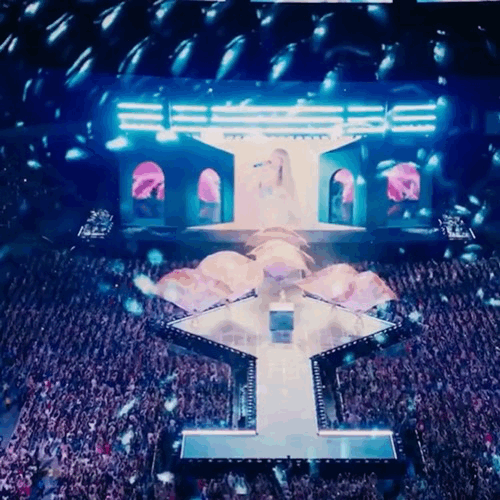


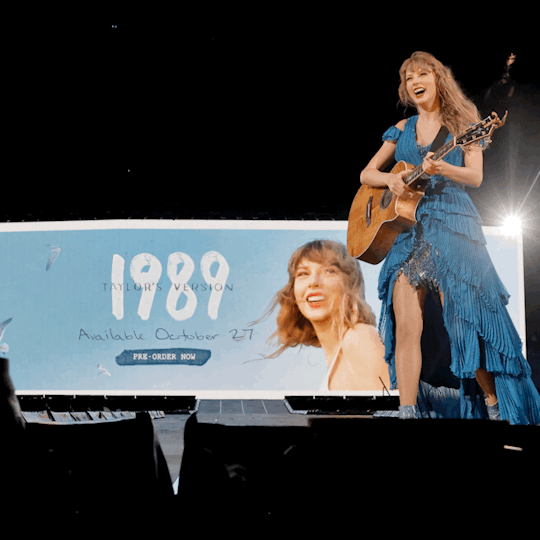





Thanks for making it best year yet! 🫶 Also, since today is 123123, we gotta say it… 1, 2, 3, let’s go (to 2024), bitch!
#Taylor Swift#2023#Year in Review#Midnights (The Til Dawn Edition)#Karma (Feat. Ice Spice)#Speak Now (Taylor's Version)#1989 (Taylor's Version)#VMAs#Taylor Swift | The Eras Tour concert film#Spotify Top Global Artist#Apple Music Artist of the Year#Google Most Searched Songwriter#Happy New Year
3K notes
·
View notes
Text
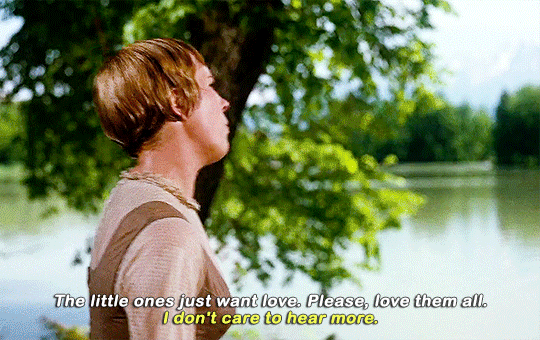
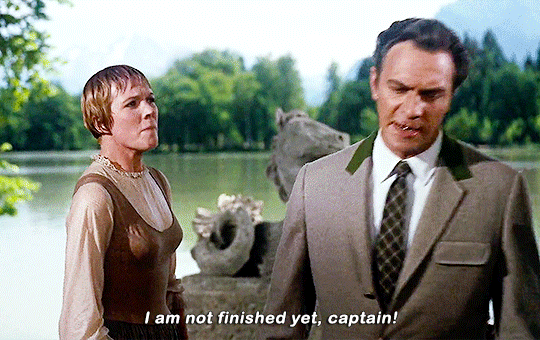
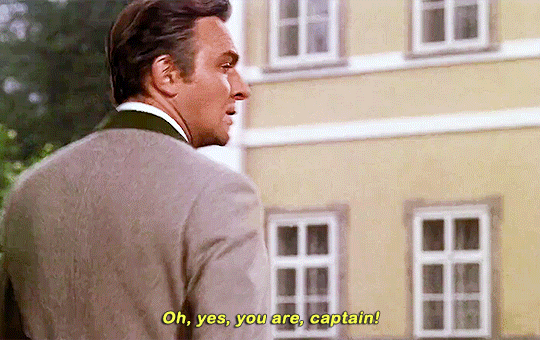
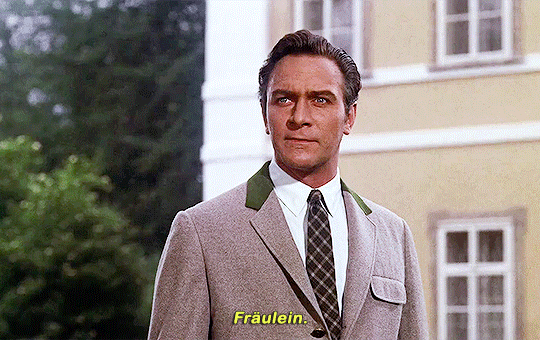
The Sound of Music
dir. Robert Wise | 1965
#The Sound of Music#filmedit#filmgifs#classicfilmedit#userteri#usertennant#usersugar#henricavyll#tuserpris#underbetelgeuse#userveronika#userrlaura#tuserpolly#1960s#film#ours#by diana
3K notes
·
View notes
Text
i don't know what this movie genre is called, but it's my favourite movie genre
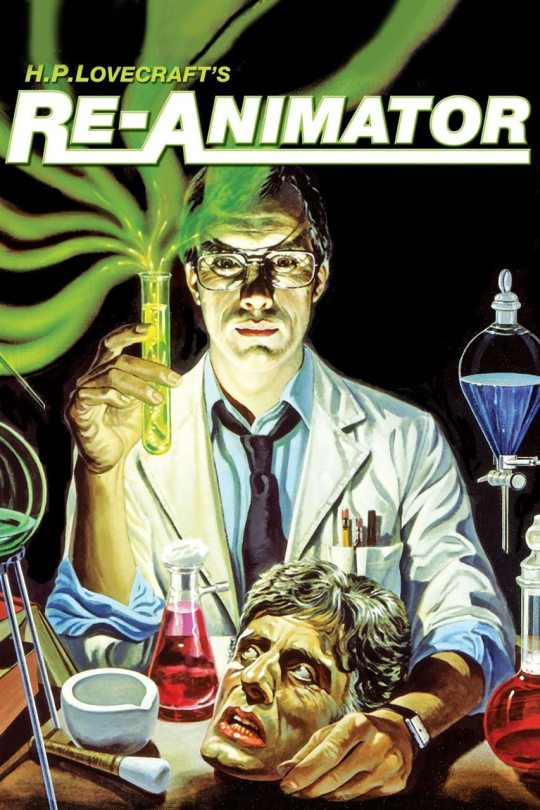
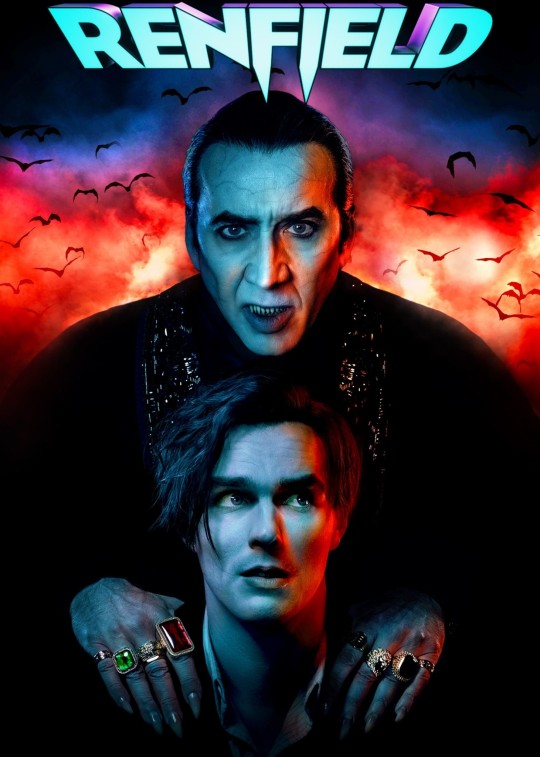

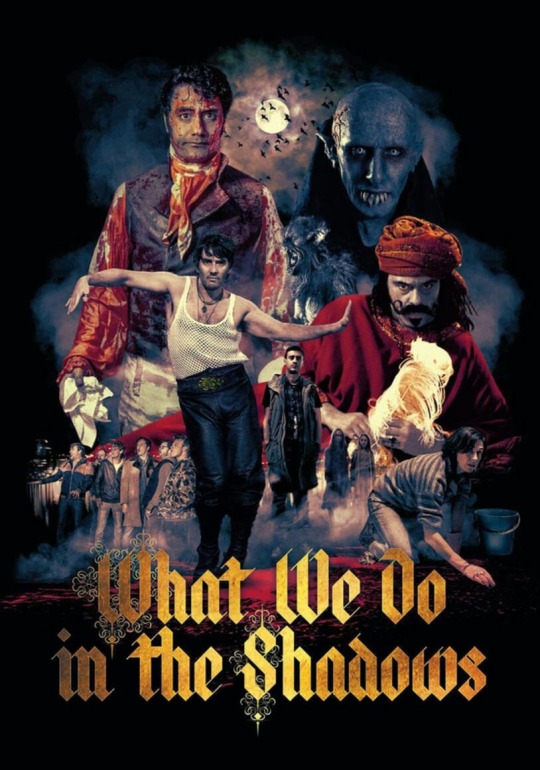

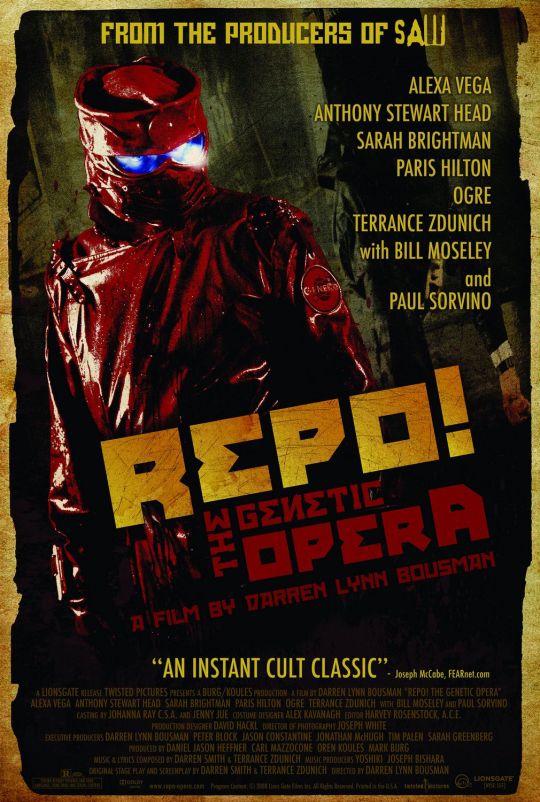

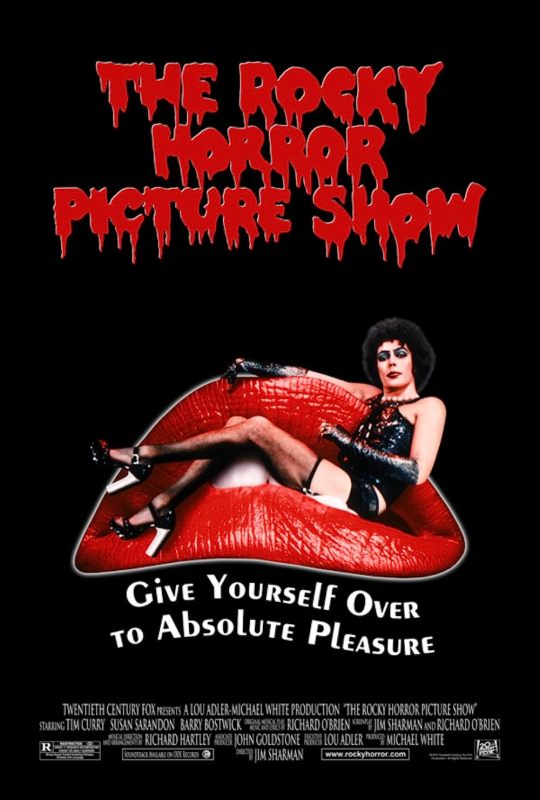

#campy horror comedies? some of which are also musicals?#re-animator#renfield#renfield (2023)#beetlejuice#beetlejuice (1988)#what we do in the shadows#what we do in the shadows (2014)#the munsters#the munsters (2022)#repo! the genetic opera#little shop of horrors#the rocky horror picture show#bride of re-animator#movies#films
7K notes
·
View notes
Text
forever obsessed with dynamics between vampires, specifically that of a maker and fledgling, as a way to explore abuse. the creation of a vampire itself can so easily be a literalization of the lasting impacts of trauma and also much more simply the ways a perpetrator might shape their victim’s very identity. the extremes of isolation in the way that the new vampire, in most narratives, must cut all ties to their mortal life, or else go through an elaborate charade to maintain the facade of humanity, while forever still being removed from it. and the sheer dependence and vulnerability of being in an entirely new state of being, wholly uncertain of what it entails, and relying on another person to define… everything.
#or just the moral dilemmas#rewatching amc interview is kind of making me insane#that moment in episode two when louis is looking for a sort of assurance in the fact that lestat may actually have some good in him#look at how he cares about music look at the simple wondrous things that can bring him joy#and then the immediate dread when the opera performance turns out to be imperfect because he knows how lestat will react to *that*#I think there’s also something really interesting in the highlighting of lestat upbraids the less skilled singer before killing him#(slowly)#but also I will wait to watch more before I articulate my thoughts#vampires#interview with the vampire#amc interview with the vampire#i ramble sometimes#I do still find the lestat and claudia film and novel dynamic by far the most compelling for how she tries to usurp him but almost to be him#but I’m enjoying this#I’m very curious if I will like show claudia more on rewatch#the movie always resonated most with me (sue me lol) because there seemed to be more simultaneous fondness and attachment even at the end
4K notes
·
View notes
Text

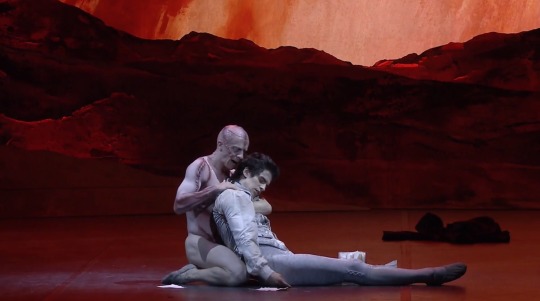
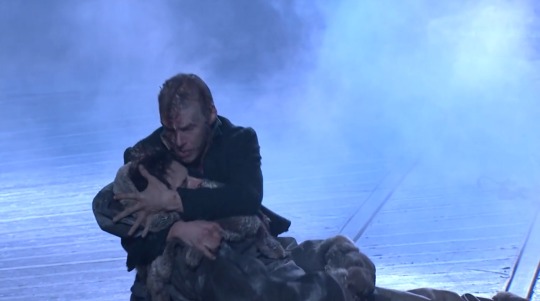
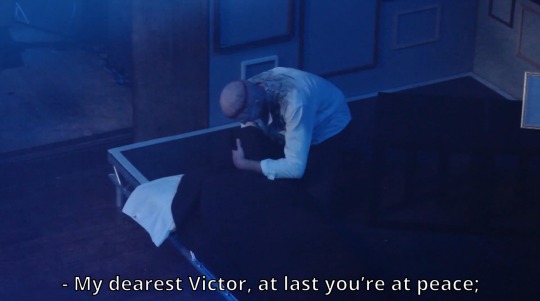
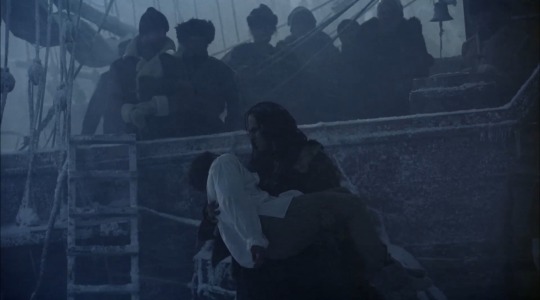
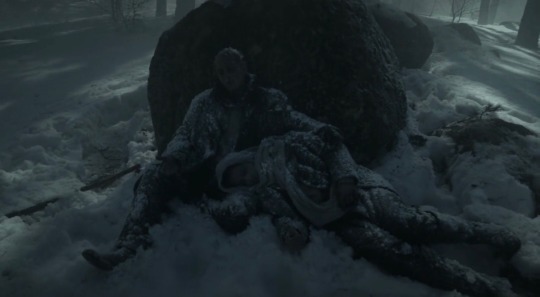
“Frankenstein, or the Modern Prometheus” by Mary Wollstonecraft Shelley (1818) // Frankenstein from the Royal Ballet (2016) // National Theatre Live: Frankenstein (2011) // Frankenstein: The Metal Opera (2014) // Frankenstein (TV Miniseries 2004) // Creature (TV Miniseries 2023)
Grief of the Creature across various adaptations
#I’m sorry I’m not done with this brainriot yet 🥺#Frankenstein#I like it when the Creature embraces Victor in the adaptations even though he doesn’t in the book#it feels right#he doesn’t do it in the vimeo musical or the 1994 film adaptation#he kinda does in the Puppet Opera but it’s hard to see on a screenshot
1K notes
·
View notes
Text
Note: this list references the 1961 version of West Side Story and the 1954 version of A Star Is Born.
#american film institute#afi#musical film#movie musical#old hollywood#old films#old movies#vintage movies#technicolor#classic film#classic cinema#singin in the rain#west side story#west side story 1961#the wizard of oz#the sound of music#cabaret#mary poppins#cabaret 1972#my fair lady#an american in paris#meet me in st. louis#1930s movies#1940s movies#1950s movies#1960s movies#1970s movies#movie polls#a star is born#a star is born 1954
944 notes
·
View notes
Text

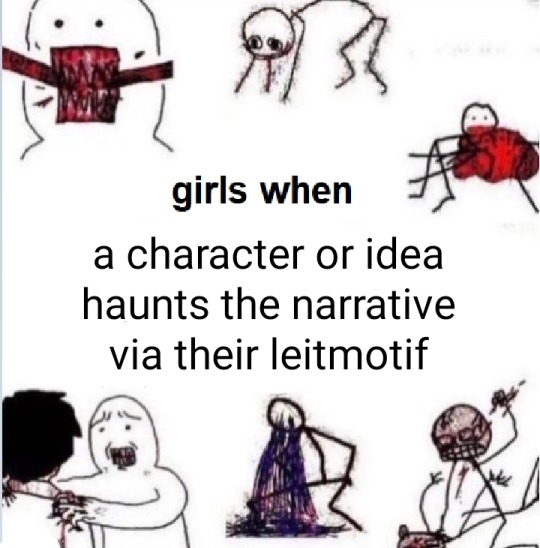

Thinking about film scores & concept albums & auditory storytelling
#grrr argh bite#it's so!!!!!#i love you film & tv composers you're my world#film scores#songwriting#narratives#music#film#leitmotifs#media analysis#themes#motifs#she speaks!#id in alt text#15k
19K notes
·
View notes
Photo
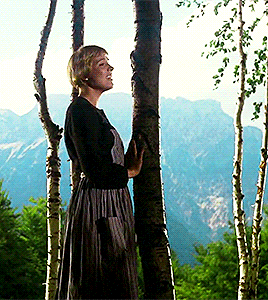

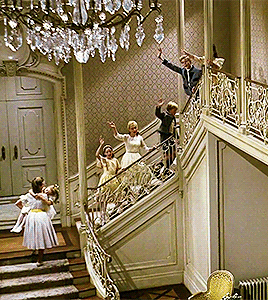
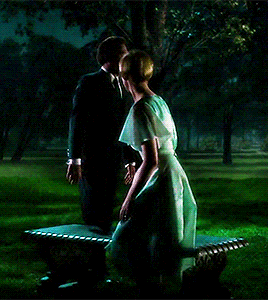
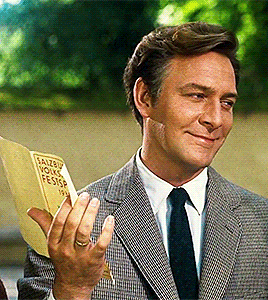
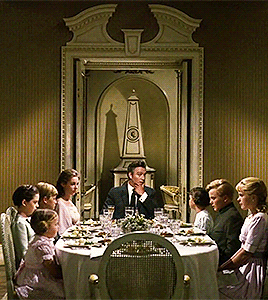


THE SOUND OF MUSIC (1965)
dir. Robert Wise
#tsomedit#the sound of music#filmedit#filmgifs#musicalsgifs#romancegifs#dailyflicks#fyeahmovies#cinematv#filmtv#dailytvfilmgifs#**#film: the sound of music#1k#2k
3K notes
·
View notes
Text




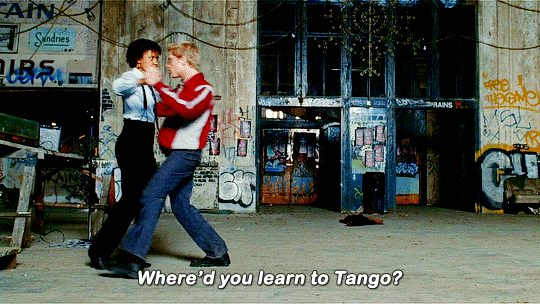


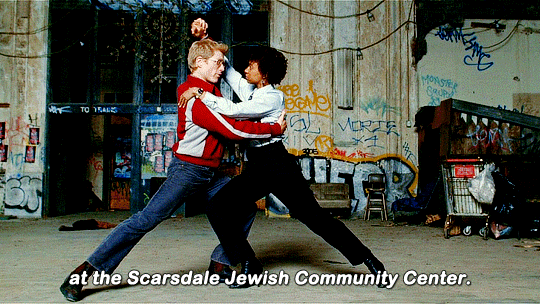
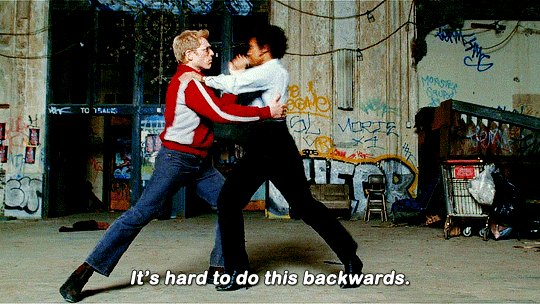


Might as well dance a tango to hell. At least I'll have tangoed at all.
#rent 2005#rent movie#anthony rapp#tracie thoms#mark cohen#joanne jefferson#rentedit#rent the musical#musicaledit#userbbelcher#userstream#cowboycoven2#chewieblog#filmtv#cinemapix#cinematv#fyeahmovies#moviegifs#filmedit#filmgifs#2005#mine*#films#tango
763 notes
·
View notes
Text
#polls#personally i dont like it but thats only because i dont like fandom. the type of stuff that gets the most attention#in fandom usually just annoys me idk. how to explain it in a way that wont come off as me saying#fanfic or whatever is evil its just the fact that it just bombards alot of the conversations?#i prefer it when the thing i like has 10 fans and theyre all on one message board or forum#like for example mtvs downtown is getting popular but apart from annoying#'me and the mid nerd guy i copped by being weird and sexy' posts its not awful....#but then smth like... clone high or smth i suddenly cant remember ppl just got so annoying abt that show??#like i cant stand it i dont even bother watching it anymore plus its just weird to me now like i can't watch it regardless#im just rambling but personally i do not like it. like i dont want what i like to get a revival#i dont want anything new! i just want to enjoy the thing and move on 😭#fandom seems to prioritize shipping and memes over evaluating or simply just enjoying something!#this goes for anything. music film tv books....
948 notes
·
View notes